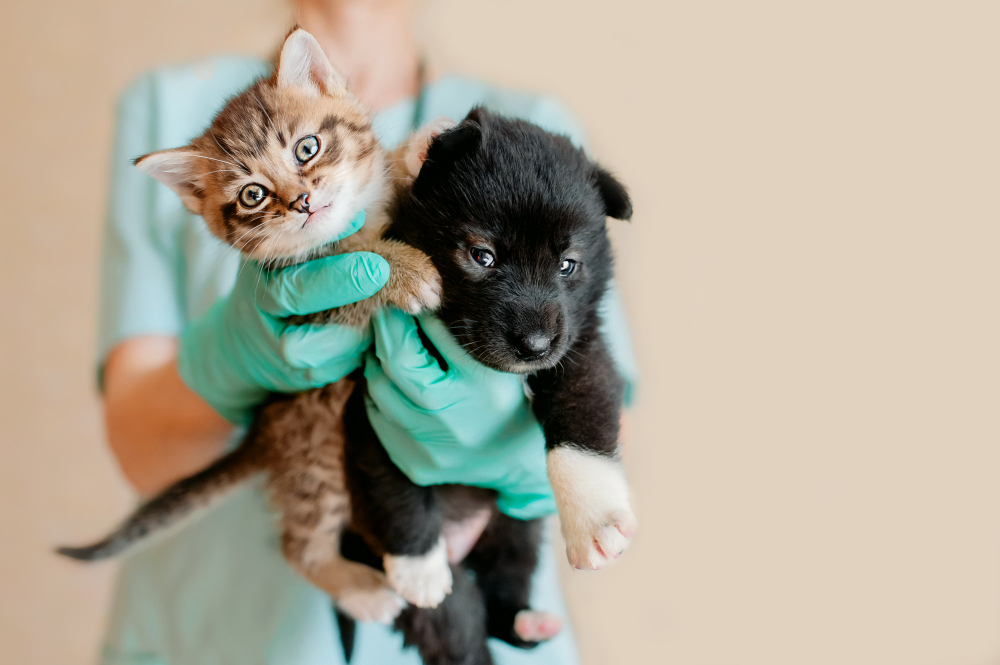The Ultimate Guide to Pet Health Maintenance: Keeping Your Furry Friend Fit and Happy
[ad_1]
The Ultimate Guide to Pet Health Maintenance: Keeping Your Furry Friend Fit and Happy
Introduction
Having a furry friend as a pet brings immense joy and love into our lives, but it also comes with great responsibility. Pet health maintenance is crucial to ensure that our beloved animals stay fit, happy, and live a long and healthy life. This ultimate guide provides you with essential tips and information to help you keep your furry friend in the best possible shape.
1. Balanced Diet
A well-balanced diet is the key foundation of good pet health. Providing your pet with high-quality pet food that meets their nutritional needs is essential. Consult with your veterinarian to determine the appropriate diet for your specific pet as it may vary depending on breed, age, and overall health. Avoid offering your pets human food, as certain ingredients can be harmful to them.
2. Regular Exercise
Just like humans, pets need regular exercise to maintain a healthy weight and overall well-being. Depending on the type and breed of your pet, the exercise requirements may differ. Dogs, for example, need daily walks or playtime in a secure area, while cats can benefit from interactive toys and vertical space for climbing. Engage your pet in activities they enjoy, and always be mindful of their limitations.
3. Vaccinations
Vaccinating your pet is crucial in preventing various diseases, including rabies, parvovirus, distemper, and more. Regular vaccinations, as recommended by your veterinarian, help boost your pet’s immune system and protect them from potential illnesses. Keep a record of your pet’s vaccinations and stay updated with their booster shots.
4. Routine Veterinary Check-ups
Schedule regular visits to the veterinarian for routine check-ups. These visits allow your vet to assess your pet’s overall health, screen for any underlying conditions, and administer preventive treatments such as deworming and flea control. Early detection of health issues can significantly improve the chances of successful treatment.
5. Dental Care
Oral hygiene is often overlooked but plays a vital role in maintaining your pet’s overall health. Dental problems can lead to infections, tooth loss, and even heart or kidney diseases. Establish a regular teeth cleaning routine and provide appropriate chew toys or dental treats that promote good oral health.
6. Grooming
Regular grooming sessions help keep your pet clean and comfortable. Brushing your pet’s fur not only removes loose hair but also prevents matting and skin irritations. Depending on your pet’s breed, you may need to trim their nails, clean their ears, and bathe them regularly. If you are unsure about proper grooming techniques, consult a professional groomer.
7. Mental Stimulation
Just like physical exercise, mental stimulation is crucial for your pet’s overall well-being. Engage them with interactive toys, puzzle games, and teaching them new commands or tricks. Providing mental challenges can help prevent boredom and destructive behaviors.
Conclusion
Caring for your pet’s health is a responsibility and a labor of love. By following the tips outlined in this ultimate guide, you can ensure that your furry friend stays fit, happy, and healthy throughout their life. Remember to consult with your veterinarian for personalized advice and stay attentive to your pet’s ever-changing needs.
FAQs
1. How often should I feed my pet?
The frequency of feeding depends on the type of pet you have. Puppies and kittens usually require more frequent meals, about 3-4 times a day. Adult dogs can be fed once or twice a day, while adult cats prefer smaller meals throughout the day.
2. How much exercise does my pet need?
The exercise requirements vary depending on the pet’s breed, age, and health. Most dogs require at least 30 minutes to 2 hours of exercise every day, while cats generally require shorter play sessions multiple times a day.
3. When should I vaccinate my pet?
Vaccination schedules may vary depending on your pet’s age and local regulations. It is best to consult with your veterinarian to determine the appropriate vaccination plan and schedule for your furry friend.
4. How often should I groom my pet?
Grooming requirements depend on the type of pet and breed. Dogs with longer coats may need more frequent grooming sessions, while short-haired dogs or cats may require less frequent brushing. Regular grooming helps maintain a healthy coat and prevents matting.
5. How can I ensure my pet’s dental health?
Regular tooth brushing with pet-specific toothpaste is the most effective way to maintain your pet’s dental health. Additionally, providing them with dental treats or toys designed to promote oral hygiene can also be beneficial.
[ad_2]

